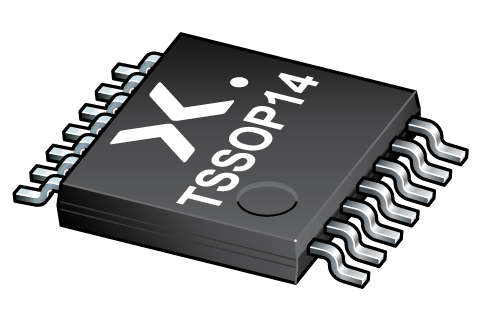
Register once, drag and drop ECAD models into your CAD tool and speed up your design.
Click here for more information74LV4066DB
Quad bilateral switches
The 74LV4066 is a quad single pole, single throw analog switch. Each switch features two input?/?output terminals (nY and nZ) and an active HIGH enable input (nE). When nE is LOW, the analog switch is turned off. Digital inputs include clamp diodes. This enables the use of current limiting resistors to interface inputs to voltages in excess VCC.
Alternatives
Features and benefits
Wide supply voltage range from 1.0 to 6.0 V
CMOS low power dissipation
Direct interface with TTL levels
Latch-up performance exceeds 100 mA per JESD 78 Class II Level B
Complies with JEDEC standards:
JESD8-7 (1.65 V to 1.95 V)
JESD8-5 (2.3 V to 2.7 V)
JESD8C (2.7 V to 3.6 V)
JESD36 (4.5 V to 5.5 V)
Typical VOLP (output ground bounce): < 0.8 V at VCC = 3.3 V and Tamb = 25 °C
Very low ON-resistance:
60 Ω (typical) at VCC = 2.0 V
35 Ω (typical) at VCC = 3.0 V
25 Ω (typical) at VCC = 4.5 V
ESD protection:
HBM: ANSI/ESDA/JEDEC JS-001 class 2 exceeds 2000 V
CDM: ANSI/ESDA/JEDEC JS-002 class C3 exceeds 1000 V
Specified from -40 °C to +80 °C and from -40 °C to +125 °C
PCB Symbol, Footprint and 3D Model
| Model Name | 描述 |
|---|---|
|
|
封裝
下表中的所有產品型號均已停產 。
| 型號 | 可訂購的器件編號,(訂購碼(12NC)) | 狀態 | 標示 | 封裝 | 外形圖 | 回流焊/波峰焊 | 包裝 |
|---|---|---|---|---|---|---|---|
| 74LV4066DB | 74LV4066DB,112 (935170200112) |
Obsolete | no package information | ||||
| 74LV4066DB,118 (935170200118) |
Obsolete | ||||||
環境信息
下表中的所有產品型號均已停產 。
| 型號 | 可訂購的器件編號 | 化學成分 | RoHS | RHF指示符 |
|---|---|---|---|---|
| 74LV4066DB | 74LV4066DB,112 | 74LV4066DB |
|
|
| 74LV4066DB | 74LV4066DB,118 | 74LV4066DB |
|
|
Series
Longevity
The Nexperia Longevity Program is aimed to provide our customers information from time to time about the expected time that our products can be ordered. The NLP is reviewed and updated regularly by our Executive Management Team. View our longevity program here.
模型
| 文件名稱 | 標題 | 類型 | 日期 |
|---|---|---|---|
| lv | lv Spice model | SPICE model | 2013-05-07 |
PCB Symbol, Footprint and 3D Model
| Model Name | 描述 |
|---|---|
|
|
How does it work?
The interactive datasheets are based on the Nexperia MOSFET precision electrothermal models. With our interactive datasheets you can simply specify your own conditions interactively. Start by changing the values of the conditions. You can do this by using the sliders in the condition fields. By dragging the sliders you will see how the MOSFET will perform at the new conditions set.
